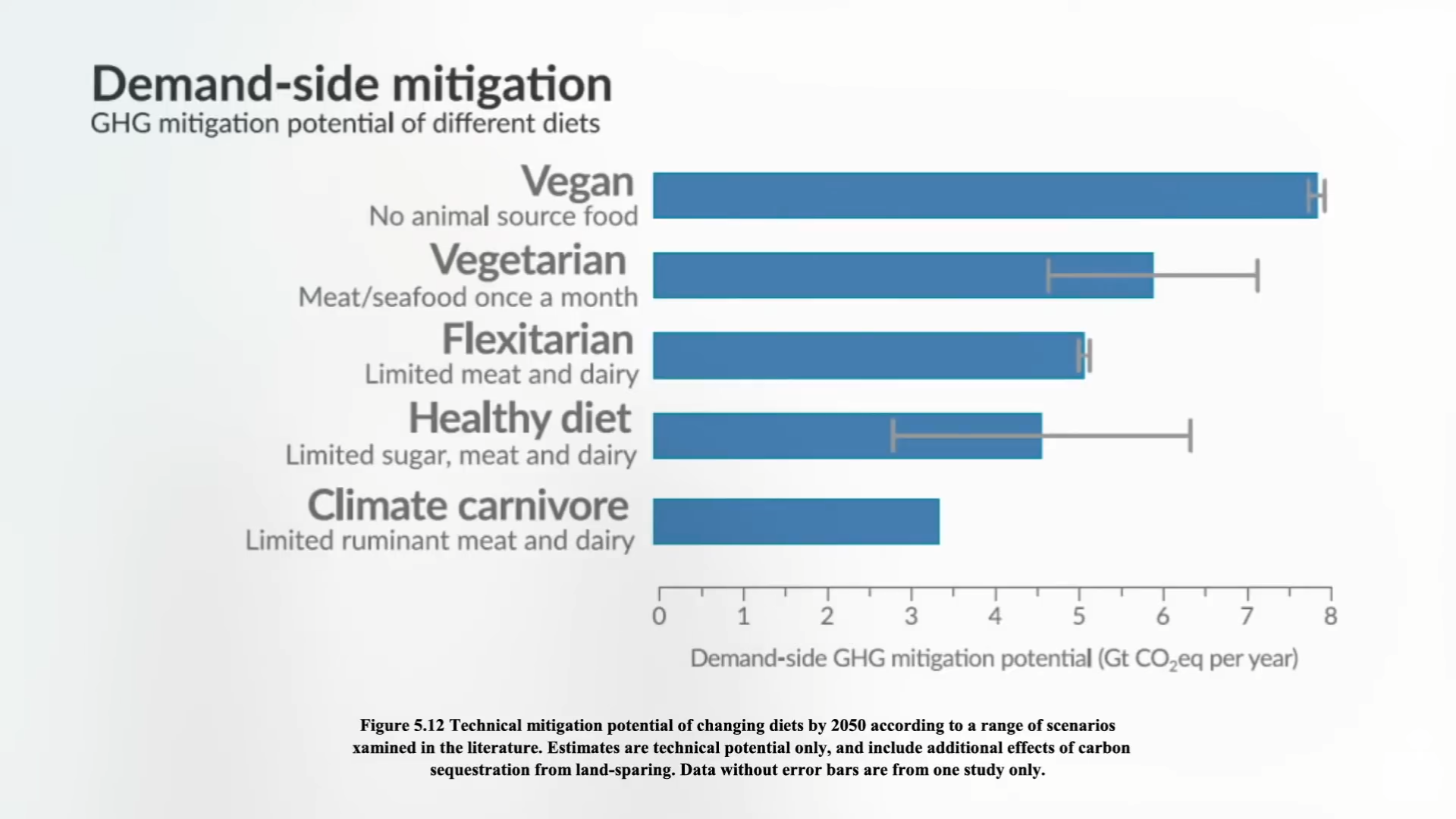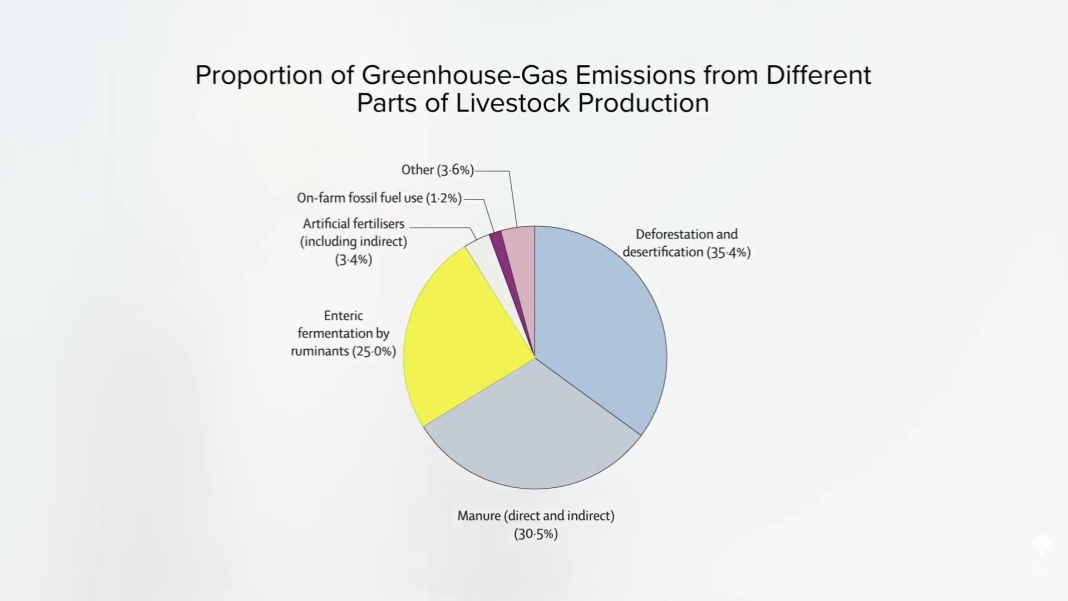Why don’t environmental teams advocate for climate-friendlier diets?
In what “was arguably the most important ever environmental protest on the planet,†multiple million youngsters in multiple hundred international locations joined the “World Local weather March, demanding that governments act now to scale back local weather change and world warming.†“The issues of the younger protesters are justified†and “supported by the very best out there science,†wrote a gaggle of scientists and students. “The big mobilization of the Fridays for Future/Local weather Strike motion exhibits that younger individuals have understood the scenario. As scientists and students, we strongly assist their demand for fast and forceful motion.â€
When it comes to our meals provide, there are a lot of little tweaks which will assist, like feed components that may scale back cattle belching, however in the event you put all of them collectively, in accordance with the distinguished EAT-Lancet Fee, we’re solely speaking about lowering agricultural greenhouse fuel emissions by about 10 % in 2050. In distinction, if we as an alternative switched to plant meals, “elevated consumption of plant-based diets might scale back emissions by as much as 80%.â€
As you may see under and at 1:02 in my video Which Diets Have the Lowest Carbon Footprint?, all these cow, sheep, and goat burps solely symbolize a fraction of the greenhouse fuel emissions from animal agriculture.Â

That’s why, in accordance to the Intergovernmental Panel on Local weather Change (IPCC), turning into a so-called “local weather carnivore†and simply chopping down on ruminant merchandise like beef wouldn’t scale back greenhouse fuel emissions as a lot as consuming a more healthy eating regimen and limiting meat throughout the board. And the less animal merchandise, the higher, as seen under and at 1:32 in my video.Â

“Which eating regimen has the least environmental impression on our planet?†A scientific overview discovered that “the vegan eating regimenâ€â€”consuming fully plant-based—“is the optimum eating regimen for the surroundings,†nevertheless it isn’t all or nothing, as you may see under and at 1:49 in my video. Even simply chopping down on meat to lower than an oz. or two a day might get you midway there by way of lowering greenhouse fuel emissions.Â

In the case of land use, as you may see right here and at 1:56, a more healthy eating regimen, like a Mediterranean eating regimen, might lower your footprint by a few quarter, whereas much more plant-based diets can drop land use by 50 % or extra.Â

Generally, diets that embrace meat require about 3 instances extra water, 13 instances extra fertilizer, greater than twice the vitality, and 40 % extra pesticides than consuming patterns that don’t. In the event you look much more broadly on the whole environmental impression of omnivorous versus vegetarian versus vegan diets and think about not simply world warming, but in addition ocean acidification, agricultural run-off, smog, the ecotoxicity of the water and soil, and direct human toxicity of the air we breathe, the water we drink, and the soil we develop our meals from, consuming eggs and dairy could also be 9 instances worse than crops and consuming eggs, dairy, and meat could also be 17 instances worse than sticking to plant meals. As a bonus, “changing all animal-based objects within the US eating regimen with plant-based options will add sufficient meals to feed, in full, 350 million further individuals, properly above the anticipated advantages of eliminating all provide chain meals waste.†That’s greater than the U.S. inhabitants and greater than if we fully irradicated meals waste.
“Altering meat-eating habits could also be seen as a comparatively low-cost and straightforward approach to mitigate local weather change, in distinction to many different local weather mitigation behaviors,†elements exterior our management. Nonetheless, surveys recommend few “appear to acknowledge the choice of consuming much less meat as a signiï¬cant alternative for serving to the mitigation course of.†Certainly, “analysis has proven that customers typically underestimate the impacts of meat consumption on the surroundings, typically, and on local weather change, specifically…The excellent effectiveness of the much less meat possibility (as established by local weather specialists) was acknowledged by merely 12% of the Dutch and 6% of the American pattern,†and that’s after they have been prompted to imagine local weather change is definitely occurring.
“There is overwhelming scientific consensus that local weather change is actual and that we’re driving it,†however solely about half of U.S. adults consider it. This isn’t by coincidence. Identical to the tobacco trade tried to subvert the “overwhelming proof that smoking and secondhand smoke trigger most cancers and coronary heart illness,†corporations like “Exxon orchestrated a local weather change denial marketing campaign that stalled significant efforts to scale back greenhouse gases for many years.â€
Definitely, environmental teams ought to know higher, although. “Not one of the highest profile NGOs examined…featured meat consumption and local weather change amongst their major local weather change internet campaigns.†They have been all “conscious of the scientific proof connecting livestock manufacturing and meat consumption to local weather change,†however, evidently, “scientific proof alone was not sufï¬cient to compel NGOs to undertake campaigns on the difficulty.†It’s like one other type of denialism that may change into “a unfavorable suggestions loopâ€; it’s an unpopular matter to debate, so that you don’t focus on it, so it stays unpopular to debate. “This in flip deprives the difficulty of the eye that might be wanted for it to extend in prominence†and escape.
When environmental teams have messaged about it, they “have favored asking for average reductions in meat consumption,†which is “notable given analysis demonstrating the environmental advantages of completely or almost meat-free diets.†It could possibly be a way more highly effective lever on the particular person degree to go even additional, however they don’t wish to be seen as telling individuals what to do. As a substitute, they advocate for small modifications, like turning off your laptop monitor at lunchtime or printing on either side of a sheet of paper. Nonetheless, the “cumulative impression of enormous numbers of people making marginal enhancements of their environmental impression shall be a marginal collective enchancment in environmental impression. But, we stay at a time once we want pressing and bold modifications.â€
That is the final video in a three-part sequence. In the event you missed the primary two, see Win-Win Dietary Options to the Local weather Disaster and Which Meals Have the Lowest Carbon Footprint?.
Additionally take a look at Friday Favorites: Which Meals and Diets Have the Lowest Carbon Footprint?.
For extra, I even have an older video, Eating regimen and Local weather Change: Cooking Up a Storm, and this digital obtain on utilizing plant-based or cultivated meat as a local weather (and pandemic) mitigation technique.Â

